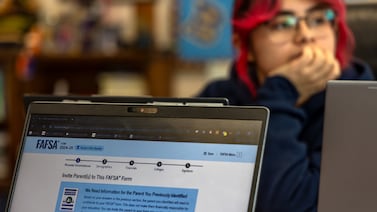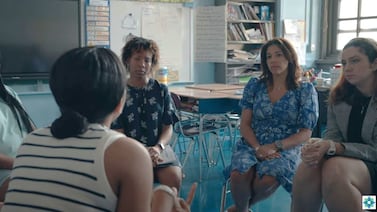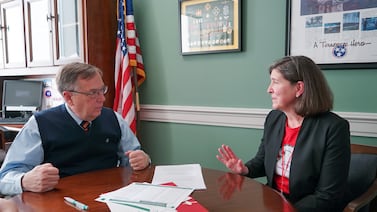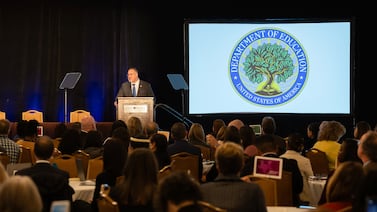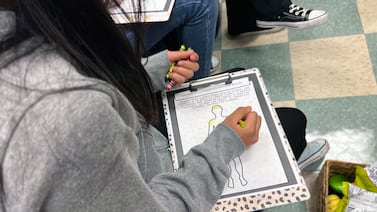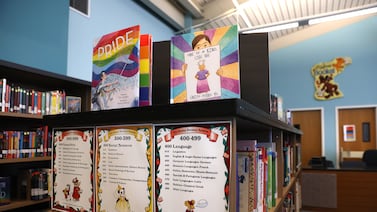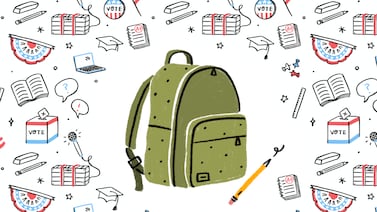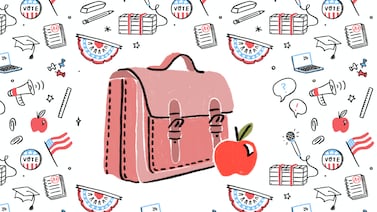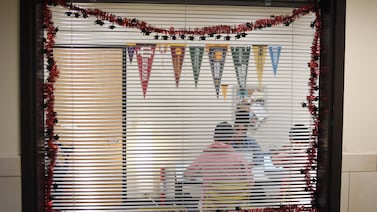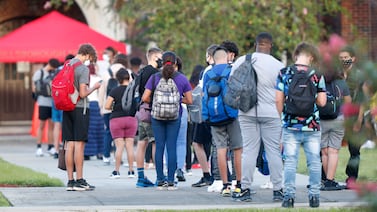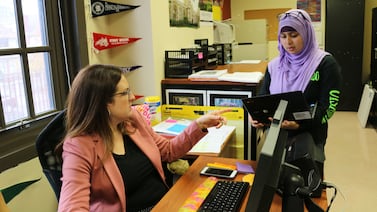Become a Chalkbeat sponsor
National
Parents without Social Security numbers can now contribute to the FAFSA. But schools are still working to support families that have to manually enter financial information.
Nearly two-thirds of American teenagers use TikTok regularly. We want to hear students’ opinions about efforts to ban TikTok.
This New York City school counselor uses art therapy, breathing exercises, and details from her trips to Ecuador to bond with newcomer students at her Queens elementary school.
Allowing homeless students to buy their own clothes and providing them with cell phones has helped build trust and improve attendance. The end of COVID aid endangers that.
Gov. Ron DeSantis and LGBTQ groups have both claimed that the settlement is a win.
Framed in the rhetoric of choice, Tennessee’s new law governing childhood vaccinations is among more than a dozen recently passed or pending nationwide that set parental freedom against community and children’s health.
The president’s pitch to continue some pandemic-era programs and increase financial aid faces a hostile Congress.
The Los Angeles school district continues to give students free musical instruments. ‘The Last Repair Shop’ tells the stories of the repair technicians who keep those instruments in order.
Migrant students and other newcomers sometimes struggle after an initial honeymoon period. A program known as STRONG gives educators tools to help students before those struggles turn into mental health crises.
The College Board is launching a new digital SAT amid an evolving landscape for college admissions.
Mr. W was the busiest person I knew, but he always took five minutes out of his day to make sure I was OK.
Three new national studies find that teachers are self-censoring at high rates, and that students and teachers are more comfortable talking about race in school than LGBTQ issues.
The 2024 U.S. presidential election will dominate conversations. Chalkbeat and The New York Times want to hear from high school students about how this moment feels inside your classrooms.
The 2024 U.S. presidential election will dominate conversations. Chalkbeat and The New York Times want to hear from high school educators about how this moment feels in your classes.
Los padres sin número de Seguro Social pueden llenar una solicitud de ayuda financiera en papel (conocida como FAFSA) en lugar de usar la versión en línea. Puede ser una buena opción si tienes que hacerlo antes de una fecha límite.
Federal officials announced a temporary solution to help students whose parents lack a Social Security number complete the FAFSA. But lawmakers say a permanent fix is needed.
By declining to hear the case, the Supreme Court leaves intact admissions policies that aim to increase diversity at selective high schools. But other legal challenges may be in store.
In ‘If You See Them,’ author Vicki Sokolik writes about educational barriers these students face, including higher rates of absenteeism and undiagnosed learning disabilities.
A paper FAFSA may be a good option for students who haven’t been able to complete the online application who have pressing financial aid submission deadlines.
Chalkbeat gets a shout-out on ‘Abbott Elementary’

